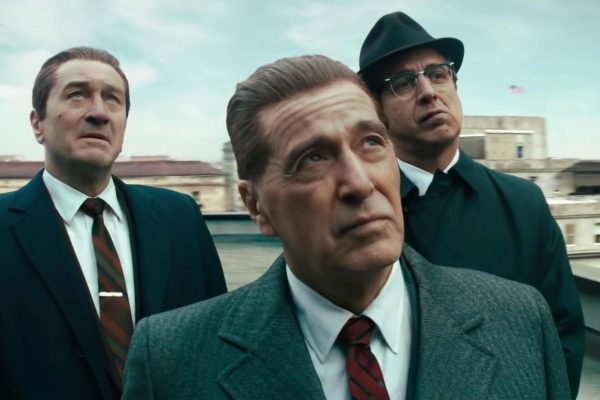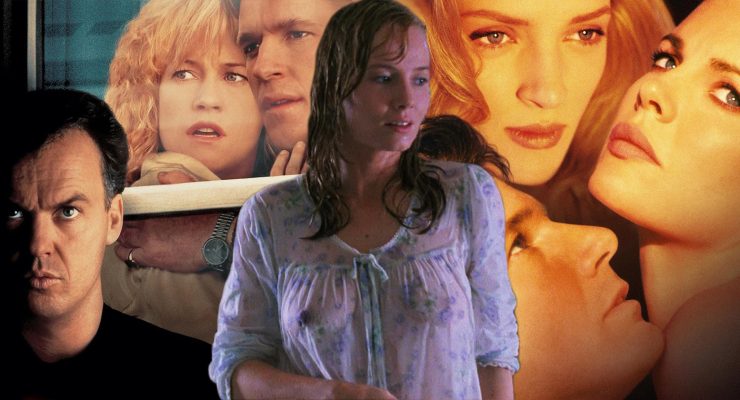As Martin Scorsese turns 79, Tom Jolliffe looks back on his astounding career so far…

He’s been known to give master-classes in film-making. He’s also a deeply passionate cinephile. Martin Scorsese knows film. In fact he knows film so well, that comments comparing Marvel films to theme park rides courted him some controversy last year. However, when it comes to film, if Scorsese talks, you’d be advised to listen. Having just turned 79, he’s still going strong and he’s still able to hit his A game with brilliant consistency. Scorsese is one of the best there’s ever been, and he’s still with us, still able to deliver the kind of films mere mortal filmmakers can only dream of.
It started with a deep passion for cinema, and a pretty early appreciation of an array of cinema from around the world. If you read through many of his curated lists, or favourites, or hear him speak specifically about cinema from an era he was growing up, he had a particular taste for Italian film, as well as the American cinema of the age. Still, by no means limited to those, as he cast his gaze out wide. It seemed Scorsese was born to make films. He rose to prominence in an era among a rat pack of aspiring, boundary pushing directors like Coppola, De Palma, Spielberg and Lucas. Like many of these directors, he cut his teeth in B pictures, making Boxcar Bertha for Roger Corman. He’d made a few shorts, and an indie film with Harvey Keitel (Who’s That Knocking At My Door). To this day he remains the most consistent, and Spielberg aside, the most active of that group.

Mean Streets landed in 1973. It’s raw, unrefined but brimming with the kind of dynamism and style that Scorsese can still deliver now. It was the mark of a film-maker able to deliver a vision, even under constraints. The long tracking shots that have become almost a Scorsese staple (if you think of the infamous Goodfellas shot for example), sleek and smooth, achievable with all the benefits of time, equipment and more crew. Mean Streets went handheld, or on makeshift dollies, with a make the best of it mentality that many great film-makers had in their earlier days. If Marty wants a shot, he’ll get it, whether it’s Mean Streets, or whether it’s his biggest budget film, The Irishman. Mean Streets started the juggernaut.

A look through his CV is pretty awe inspiring. Iconic masterpieces like Raging Bull, Goodfellas and Casino. Underrated gems like After Hours and The King of Comedy (a big inspiration on last years, Joker). His delve into expertly delivered B picture material like Cape Fear and Shutter Island (a film that has aged very well this last decade). Scorsese certainly has enough of a diverse range in his canon, even if he has a particular penchant for crime. The films all have an assurance that Scorsese brings, and show an adaptability to dial his style up or down where required. In a film like Cape Fear for example, it feels like Scorsese is indulging more (riffing like a jazz great). It’s more excessive, but it works so well. He brought that verve to Shutter Island too in fact. He’s been prone to experiment on occasion, seen perhaps in one of his more divisive and odd films, Bringing Out The Dead. It’s one some may forget about, but lets face it, Scorsese, with Nic Cage as the lead? That should be unforgettable. Still, it’s a film directed with atypical relish and you get the sense Scorsese has consistently loved what he’s doing and still does. That energy adapts to each film and it’s always present.

He’s courted some controversy over the years for more than just riling Marvel fans. Some of his films have been controversial through violence particularly, and doing a grimly stark, unromantic version of Christ’s story was always going to cause some backlash too. The Last Temptation of Christ is a fascinating film that showed Scorsese’s gift for uncompromising epics. He showed it again in Gangs of New York, and then again more recently in Silence. Though there’s a historic back bone to each, that will always bring about comparison, he always treats his work as a movie going experience first and foremost. Scorsese will never shy from artistic license if it serves his work better. There’s a certain romanticised and nostalgic tinge to his most recent epic, The Irishman, which tells the story of Frank Sheeran (De Niro) and his association with Jimmy Hoffa (Pacino). It’s easily the best Hoffa film made, and in part as Hoffa isn’t the central focal point.
Every Marty fan will undoubtedly have a standout favourite. For me, it’s Taxi Driver. Probably my second favourite film ever (sorry, Marty, but Blade Runner…). Scorsese has done so many films absolutely crammed with superb dialogue and larger than life characters. Though Taxi Driver is very overtly stylish and distinct, there’s also a certain introspective quality about it. For De Niro too, it marks one of the quietest roles he’s ever had. Bickle is total introspection, with so much obviously going on beneath the surface. It’s something De Niro portrays superbly, and genuinely unsettling at times. Yet, the world Scorsese creates, this stark, unromantic, haunting and (during the nights) oddly ethereal New York, allows De Niro this license to create such an iconic and complex character. He’s never been better (and let’s face it, De Niro has often been exceptional). Of course, there’s a particular dynamic that Scorsese has with so many of his actors, and perhaps none more so than De Niro over the years. It’s a combination made in heaven. As an opposing force, De Niro’s portrayal of Rupert Pupkin in The King of Comedy has a certain level of extroversion to it, whilst detailing the life of someone similarly imbalanced as the more introspective Bickle. The two films, and central characters as comparisons show the sheer range that Scorsese and De Niro can deliver together. Whilst the aforementioned Joker did of course draw inspiration and comparison, there’s really no comparison with either Scorsese film in terms of cinematic power. Joker is very good, but Taxi Driver is one of the best ever, and The King of Comedy is also a supreme example of cinema.
There’s still more to come from Scorsese, with Killers of the Flower Moon due next year, and offering the mouth watering prospect of DiCaprio and De Niro together in a film with the one director who has served both most consistently. It’s with some assurance I can say, Scorsese will probably deliver the goods, and for hopefully many more films in the future too.
What’s your favourite Scorsese film? Let us know on our social channels @flickeringmyth…
Tom Jolliffe is an award winning screenwriter and passionate cinephile. He has a number of films out on DVD/VOD around the world and several releases due in 2020/21, including The Witches Of Amityville (starring Emmy winner, Kira Reed Lorsch), War of The Worlds: The Attack and the star studded action films, Renegades (Lee Majors, Billy Murray) and Crackdown. Find more info at the best personal site you’ll ever see here.










